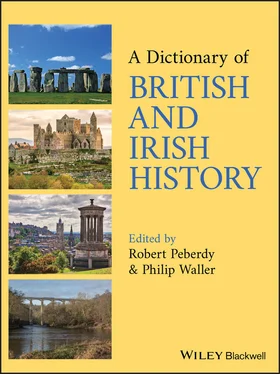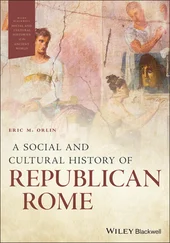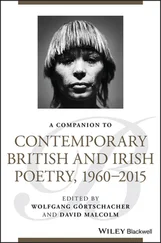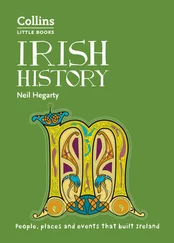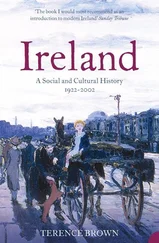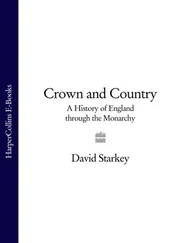A city, port and unitary authority in SW England, at the confluence of the Rivers Avon and Frome.
A town was founded by the 10th century. Its name means ‘Place by the bridge’. Bristol has been important for trade and communications with Ireland. In the 14th–16th centuries it was also a substantial centre of the CLOTH INDUSTRY. Divided between Gloucestershire and Somerset, Bristol was the first English town to receive county status (1373). England’s exploration of N America started from Bristol in 1497 ( see CABOT, JOHN). It was a bishop’s see from 1542 (except for 1836–96; joined with Gloucester).
Bristol expanded enormously from the late 17th century with the development of trade with the WEST INDIES, NORTH AMERICAN COLONIES and WEST AFRICA (notably the SLAVE TRADE). During the 18th century it superseded NORWICH as the largest and wealthiest city after London. The first METHODIST chapel opened there in 1739. Although Bristol was disadvantaged by the rise of LIVERPOOL and abolition of the slave trade (1807), it continued to process sugar and tobacco, and manufacture chocolate. It was assisted from 1841 by a RAILWAY to London.
Foreign trade diminished after WORLD WAR II (1939–45), but Bristol remained an important industrial and financial centre. It gained two universities (both by upgrading): Bristol University (1909), University of the West of England (1992).
Est. popn: 1086, 4000; 1300, 12,000; 1600, 12,000; 1800, 64,000; 1900, 330,000; 2000, 635,000.
BRITAIN
The largest island within the BRITISH ISLES, about 570 mi (920 km) in length (N–S). Continuously inhabited from c .11,000 BC, it finally became separate from Continental Europe between 5800 and 5400 BC ( see GLACIATIONS). Inhabitants adopted Brittonic (or Common Brittonic) language in the 1st millennium BC.
The island’s Brittonic name was probably Albion, meaning ‘The land’ or ‘Mainland’. Britain is recorded in the 1st century BC as Prettanike (Greek), and as Brettania or Britannia (Latin), meaning ‘Land of the Prettanoi’ or ‘Pretani’ or ‘Britanni’, i.e., ‘painted ones’, similar to the later PICTS. (‘Pretani’ was probably the Brittonic name for its inhabitants.) The island was later known in OE as Bryten. ‘Britain’ is derived from OFr., Bretaigne.
Britain was also known as Great Britain (in Greek) from the 2nd century AD, to distinguish it from Little Britain (Ireland). From the 12th century, the name differentiated Britain from Brittany in France (Lesser Britain).
Following eleven millennia with varying cultures ( see PREHISTORIC BRITAIN), over half of southern Britain was ruled by Romans (1st–5th centuries AD; see ROMAN BRITAIN). British kingdoms emerged to the N.
GERMANIC SETTLEMENT (5th–6th centuries) changed British culture in much of southern Britain to Germanic (or ‘Anglo‐Saxon’) culture (e.g., language). Germanic rulers displaced British kingdoms. The main exception was W Britain (modern Wales). In N Britain, immigration introduced Irish rule and culture ( see DÁL RIATA). Britain was disrupted by VIKINGS (8th–9th centuries).
N Britain became a single large kingdom in the 9th–11th centuries ( see SCOTLAND), and much of S Britain in the 10th century ( see ENGLAND, FORMATION OF). W Britain was taken under English rule in the 11th–13th centuries and annexed in 1536 ( see WALES). Union of England and Scotland was attempted in 1604–8, and existed briefly in the 1650s. It took place in 1707, creating GREAT BRITAIN. See also POST‐ROMAN BRITAIN; DUMNONIA; UNION OF CROWNS, ENGLAND (WITH IRELAND) AND SCOTLAND; UNION OF ENGLAND AND SCOTLAND, 1650S.
BRITAIN, BATTLE OFDuring WORLD WAR II, the acute contest for air superiority over the English Channel, fought 10 July–31 Oct. 1940 between the British ROYAL AIR FORCE and German Luftwaffe. The British lost 915 aeroplanes, the Germans 1733. The successful British defence of air space caused Adolf Hitler to postpone his intended invasion of Great Britain. See also DOWDING, HUGH. BRITANNIAsee ROMAN BRITAIN BRITISH ASSOCIATION FOR THE ADVANCEMENT OF SCIENCE
An organization founded in 1831 at YORK to encourage scientific research and seek support from the British government. Suggested by the editor and scientist David Brewster (1781–1868), who feared that British science was declining compared with science in Continental Europe, it was organized by clergyman and geologist William Harcourt (1789–1871). It also reflected concern that the ROYAL SOCIETY had become complacent.
The Association has held annual meetings in major towns in the British Isles and occasionally overseas, and published reports on the state of science. Its 1860 meeting in OXFORD famously featured a confrontation between Bishop Samuel Wilberforce and T.H. HUXLEY over the claim of Charles DARWIN that humans resulted from EVOLUTION. In the 1990s the Association’s annual meeting was developed into the British Science Festival, and in 2009 the Association was renamed the British Science Association.
BRITISH BROADCASTING CORPORATION
A public corporation (abbreviated as ‘BBC’) established by royal charter on 1 Jan. 1927 with a monopoly of RADIO broadcasting in Great Britain, NORTHERN IRELAND, the CHANNEL ISLANDS and Isle of MAN. Superseding the commercial British Broadcasting Company (created 1922), and funded by an annual radio licence, the BBC was independent of overt commercial or political influence. Its first director general was John REITH. From the 1930s the BBC developed TELEVISION broadcasting.
The charter was periodically renewed, modified or supplemented. The BBC’s work was supervised by its trustees, the Board of Governors. This model of ‘public broadcasting’ was emulated worldwide. The BBC lost its monopolies of television and radio in 1954 and 1972 respectively. In 2007 a regulatory BBC Trust replaced the Board.
BRITISH BROADCASTING CORPORATION WORLD SERVICEsee BBC WORLD SERVICE BRITISH COMMONWEALTHsee COMMONWEALTH BRITISH COUNCILAn organization which promotes knowledge of British culture (e.g., arts) and the English language overseas, founded in 1934 by the British government as the ‘British Committee for Relations with Other Countries’ to counter ideologies such as communism and fascism. It began work in E Europe and the Middle East in 1934, opening its first overseas offices in 1938, and was incorporated by royal charter as the British Council in 1940. Autonomous, but partly financed by the Foreign Office, the Council has projected British influence following the decline of the BRITISH EMPIRE. In the early 21st century it operated in over 100 countries. BRITISH EMPIRE
The term ‘British Empire’ has covered varying territories and types of activity. England founded an empire of commerce, settlement and commodity production in N America and the WEST INDIES in the 17th century, which was partly lost when most American colonies declared independence in 1776 ( see NORTH AMERICAN COLONIES). An empire was developed in E Asia from the 17th century when the EAST INDIA COMPANY established trading posts. It was greatly extended in the later 18th century through territorial acquisitions ( see INDIA), and more trading posts and territories were added later, often as PROTECTORATES ( see SINGAPORE, MALAYA, BORNEO, HONG KONG). Trading posts were founded in W Africa from the late 17th century ( see ROYAL AFRICAN COMPANY).
A new empire of white settlement was created during the later 18th century and first half of the 19th century. Control over French CANADA was established during the SEVEN YEARS WAR (1756–63), while peace settlements of 1814–15 secured a foothold in southern Africa ( see CAPE COLONY). Colonies were founded in AUSTRALIA as penal settlements ( see TRANSPORTATION). NEW ZEALAND was acquired in 1839–40.
Читать дальше
